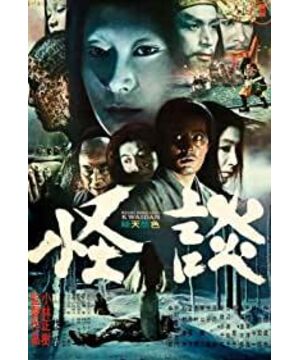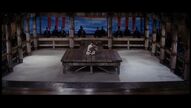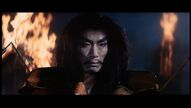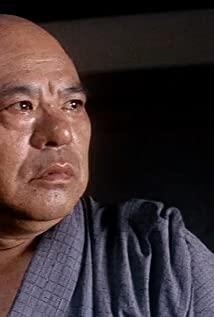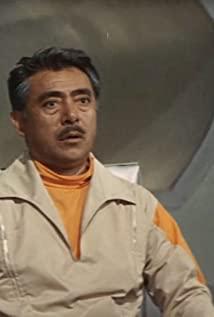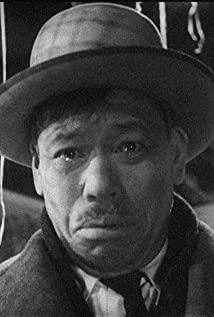The film constructs a gloomy Japanese taste. Simple, dry, solemn and lacking in human touch. Because of this movie, I turned over the original work of Koizumi Yakumo. It is also an emotionless narrative. It's like talking about the gossip of the house next door, chatting down a sum of money to save the case.
"Black Hair": Revisiting the old dream, I thought it was very emotional, but when I woke up, it turned into a nightmare that I couldn't get rid of. The wife of the hair is abandoned like a contemptible shoe. In contrast, I prefer the ending of "Smiling at Iemon". No resentment, only affection.
"Snow Girl": It turns out that demons, like people, love beauty, like family life, and hate betrayal.
"Hangichi without ear qin": At the beginning, a large "talk" (storytelling) is used to describe the historical background. If people are not interested in Japan, they may complain that it is tedious and boring. The story reminds people that dealing with ghosts will pay a price.
"Inside the Tea Bowl": It's a story about Liaozhai. The female ghost in the original book was adapted into a man in ancient costume in the movie, and the ending was not settled, a lot less glamorous, more neat and chilling. However, all the parts of the film are inseparable.
"Strange Talk" invokes a lot of Japanese quintessence elements: music, drama, painting, literature, and comprehensively displays the strangeness, power and beauty of Japanese traditional culture. From start to finish, it's like a piece of craftsmanship full of charm. However, just like the Japanese flower arrangement and tea ceremony, because they pursue details and rules too much, the beauty of form and style cannot be added, and only human nature is lacking. Admirable, but hard to get close to. This movie, like its original title "Ukiyo-e Next Door", can be used as a source of curiosity, and it is difficult to be a general guide for human feelings.
http://bodhicat.blog17.fc2.com/blog-entry-111.html
View more about Kwaidan reviews


